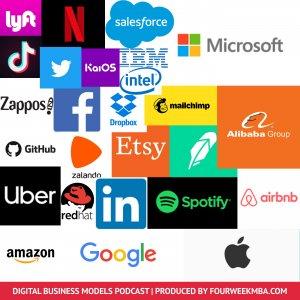FourWeekMBA

AI Moats
AI Moats Timeline:
This timeline focuses on the evolution of AI business models and competitive strategies as discussed in the provided text.
Early December 2022:
- Text Authored: The provided text, analyzing the developing AI industry and the potential for building competitive moats, is written.
- Central Question Posed: How can companies build a lasting advantage ("moat") in the AI industry, especially when building upon existing foundational models like ChatGPT?
- Three Layer Model Proposed: The text introduces a three-layer model for understanding the AI business ecosystem:
- Foundational Layer: General-purpose AI engines (GPT-3, DALL-E, etc.)
- Middle Layer: Specialized AI engines built upon the foundational layer, focusing on specific tasks or industries.
- App Layer: Applications built on top of middle-layer AI engines, targeting user growth and engagement.
Late November 2022:
- ChatGPT Released: The release of ChatGPT sparks the author's in-depth consideration of AI industry competition and the potential for establishing moats.
Ongoing & Future:
- Arbitrage Opportunities Shrink: The text notes that opportunities to quickly capitalize on the emerging AI landscape are diminishing as the technology advances.
- Multimodal Models Dominate: Foundational models are becoming increasingly multimodal (handling text, images, video, etc.), raising barriers to entry for competitors.
- OpenAI's Potential Dominance: The author speculates that OpenAI, due to its control over powerful models like GPT-3, could establish a dominant position similar to Apple's App Store, capturing value through APIs or AI application marketplaces.
- Data as a Moat: Leveraging data for integration, curation, and fine-tuning of AI models is deemed crucial for creating valuable, differentiated AI applications.
- Prompt Engineering's Significance: The emergence of "prompt engineering" (using natural language to control AI models) is highlighted as a potential core value driver and a new form of "coding."
- Network Effects in AI: The author draws parallels to the internet era, arguing that AI companies can leverage network effects and fast iteration loops to build moats, similar to companies like Netflix and TikTok.
- Workflow as a Differentiator: The efficiency and effectiveness of an AI company's workflow for developing, deploying, and iterating on AI applications is positioned as a significant barrier to entry.
- Brand & Distribution Remain Key: Building strong brands and securing strategic distribution partnerships with major tech players will remain critical for success in the AI industry.
Cast of Characters:
The Author:
- An individual deeply engaged in analyzing the AI industry, particularly the business models and competitive dynamics.
- Believes that understanding how to build defensible moats in AI is essential for long-term success.
- Draws comparisons between the evolving AI landscape and the strategies of successful internet-era companies.
OpenAI:
- A leading AI research and deployment company.
- Developer of powerful foundational AI models like ChatGPT and DALL-E.
- Positioned as a potential dominant force in the AI industry, potentially shaping the market through its technology and partnerships.
Microsoft:
- A major technology company that has formed a strategic partnership with OpenAI.
- This partnership is highlighted as an example of how distribution and technology will be intertwined in the AI industry.
Other Companies/Entities Mentioned:
- DeepMind: An AI subsidiary of Google, mentioned in the context of AI partnerships.
- Stability AI: An open-source AI company known for its work on Stable Diffusion, mentioned as partnering with Apple.
- Apple: A tech giant highlighted for its potential partnership with Stability AI.
- Amazon AWS: Highlighted for leveraging its existing cloud infrastructure for AI.
- Meta (Facebook), Google, Netflix, TikTok: Mentioned as examples of companies that have successfully employed network effects and AI to achieve scale and dominance.






 Visit Podcast Website
Visit Podcast Website RSS Podcast Feed
RSS Podcast Feed Subscribe
Subscribe
 Add to MyCast
Add to MyCast